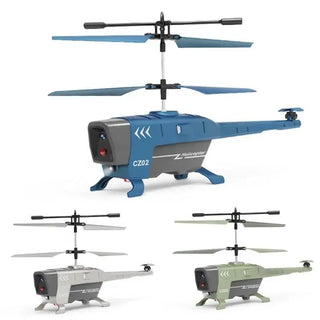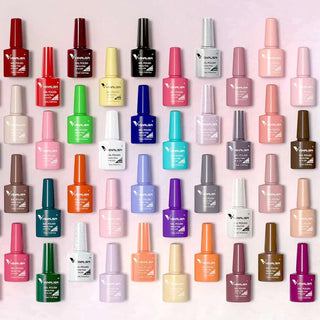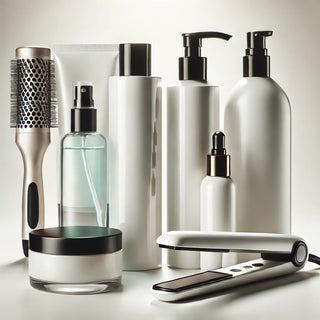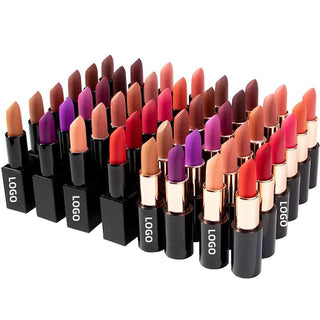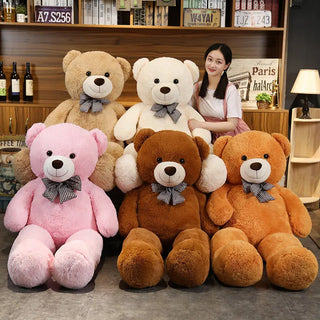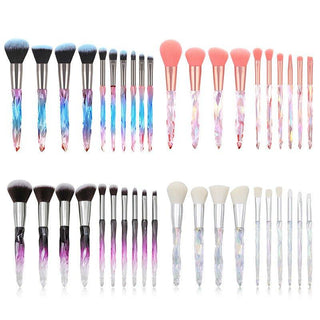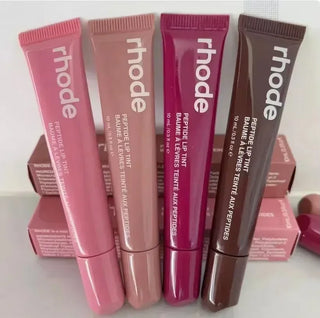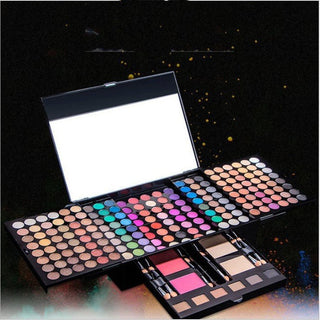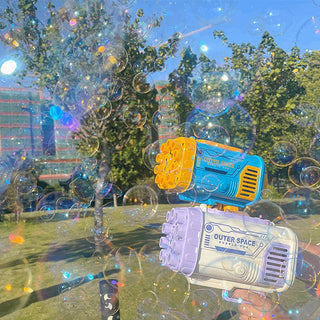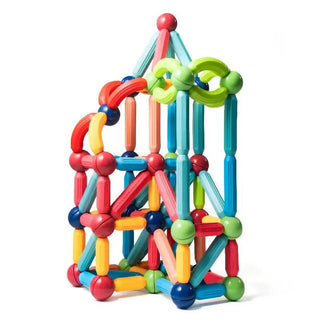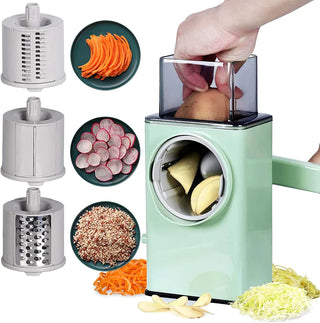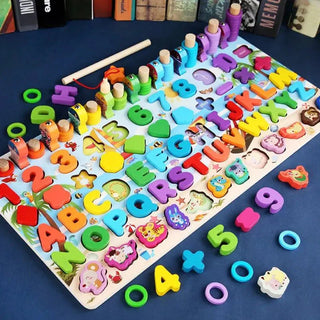Looking for a great place to get supplies for your favorite pastime? Finding the right hobby store near me can really make a difference. It's not just about grabbing materials; it's about finding a place that gets what you're into. This guide will help you figure out what makes a hobby shop a good fit, from the stuff they sell to the people who work there.
Key Takeaways
- Check out the range of items and brands a store carries to make sure it has what you need for your hobby.
- Don't underestimate the value of helpful staff who can offer advice and suggestions.
- Consider how easy it is to get to the store, whether it's a physical location or an online shop.
- Look for stores that offer classes, workshops, or events to connect with other hobbyists.
- Think about what makes a hobby store successful in its area, like understanding local customers and what competitors offer.
Variety of Products and Brands

When you're looking for a new hobby, the first thing you'll probably want to check out is what kind of stuff the store actually carries. A good hobby shop will have a bit of everything, catering to a wide range of interests. It's not just about having a lot of items, though; it's about having the right items.
Explore a Wide Range of Supplies
Think about what you're into. Are you a painter? A knitter? A model builder? A good store will have supplies for all of these and more. You might find sections dedicated to:
- Art supplies: Paints, brushes, canvases, sketchpads, pastels.
- Crafting materials: Yarn, fabric, beads, scrapbooking paper, clay.
- Model building: Kits, glues, paints, tools, accessories.
- Electronics and robotics: Components, kits, tools, microcontrollers.
- Gaming: Board games, card games, miniatures, role-playing games.
It's always a good sign when a store has a broad selection, meaning you can probably find what you need, or at least something close to it, without having to hop between multiple places. You might even discover a new craft you want to try just by browsing their shelves. For example, if you're looking for a specific action figure, like the Ken Masters Hoshi Ryu action figure, you'd want to see if they have a dedicated collectibles section.
Discover Your Preferred Brands
Beyond just the types of supplies, the brands they stock can tell you a lot about the store. Do they carry well-known, reputable brands that you trust? Or do they focus on lesser-known or house brands? While house brands can sometimes be a good value, having access to popular brands means you know what you're getting. It's also nice when a store carries a mix, giving you options for different budgets and quality preferences. Some stores might even have exclusive lines or brands that you can't find anywhere else, which is always a bonus.
Find Essentials and Specialized Tools
It's one thing to have the basic materials, but a truly great hobby store also stocks the specialized tools and accessories that make your craft easier or allow you to do more advanced techniques. For example, if you're into sewing, you'll want to see more than just fabric and thread; look for things like specialized presser feet, seam rippers, rotary cutters, and maybe even different types of sewing machines. Similarly, a model builder might need specific types of glue, precision tweezers, airbrushes, or specialized cutting mats. Having these niche items available means the store really understands the needs of its customers.
A store that stocks both the everyday basics and the hard-to-find specialty items shows they're serious about supporting hobbyists at all skill levels. It means they've thought about the entire process, from starting out to mastering advanced techniques.
Knowledgeable Staff Assistance
Sometimes, you just need a little help, right? That's where the staff at your local hobby store can really make a difference. Having someone who actually knows what they're talking about can save you a lot of frustration. Whether you're a beginner trying to figure out which paints to buy for your first miniature or an experienced crafter looking for a specific type of yarn, good staff can point you in the right direction.
Seek Expert Guidance on Products
Don't hesitate to ask questions. The employees are usually there because they have an interest in the products themselves. They can explain the differences between various types of glue, recommend the best paper for watercolor painting, or tell you which model kit might be good for a younger builder. They’ve probably used a lot of this stuff themselves, so their advice is often pretty solid.
Receive Tips for Your Craft
Beyond just product recommendations, staff can sometimes offer practical advice on techniques. Maybe you're struggling with a particular knitting stitch or can't get your airbrush to work correctly. A quick tip from someone who's been there can be a game-changer. It’s like getting a mini-lesson without having to sign up for a formal class. For example, if you're working on a detailed project, they might suggest a specific type of wooden bead maze for practicing fine motor skills with younger helpers.
Find Suitable Alternatives
What happens when the exact item you need is out of stock? A knowledgeable employee can be your best friend here. They can suggest comparable products from different brands or show you something similar that might work just as well, possibly even better, for your project. This is especially helpful if you're on a budget or if a particular item is hard to find. They can help you avoid leaving empty-handed and potentially discover a new favorite product.
Convenient Location or Online Presence
When you're looking for a hobby store, convenience is a big deal. It's not just about finding what you need, but also about how easy it is to get it. This means thinking about both physical locations and online shops.
Prioritize Proximity for In-Person Shopping
For those who like to see and touch their supplies before buying, a nearby store is a lifesaver. Think about how often you'll visit. If it's a place you plan to pop into regularly for yarn, paints, or model kits, being close by saves a lot of time and hassle. Consider the commute: Is it easy to get to? Is there parking? A store that's a quick drive or even a walk away makes spontaneous shopping trips much more enjoyable. It's also about the overall experience – being able to browse without a long journey can really make a difference.
Evaluate Online Store User-Friendliness
If you're shopping online, the website itself becomes your location. A good online store should be easy to navigate, with clear categories and a simple checkout process. You don't want to spend ages hunting for that specific honey jars you need. Look for sites that load quickly, have good search functions, and provide clear product descriptions and images. If the website feels clunky or confusing, you're less likely to stick around, no matter how good their selection is.
Check Shipping Options and Rates
For online shopping, shipping is your main consideration. What are the shipping costs? Do they offer different speeds, like standard or expedited? It’s also worth checking if they ship to your specific area. Sometimes, a great online store might not deliver to your town, which is a real bummer. Compare the total cost, including shipping, with other stores to make sure you're getting a good deal. Sometimes, a slightly higher product price with free or cheap shipping can be better than a lower product price with expensive shipping.
Community and Educational Resources
A good hobby shop isn't just about the stuff they sell. It's about building a connection with people who love the same things you do. Think about stores that offer classes or host get-togethers. These can be super helpful, whether you're just starting out and need to learn the basics, or you've been doing your hobby for years and want to meet others who get it.
Attend Workshops and Classes
Many hobby stores offer workshops and classes. This is a fantastic way to pick up new skills or improve the ones you already have. You can learn anything from basic knitting techniques to advanced model building. It’s a great chance to get hands-on experience and ask questions directly from people who know their stuff. Sometimes, you can even find classes focused on specific projects, like learning how to use those Montessori sticks for educational play.
Connect with Fellow Hobbyists
Beyond classes, look for stores that help build a community. This could be through a bulletin board where people post about local clubs, or even just a friendly atmosphere where staff know the regulars. Having a place to chat with other people who share your passion is really motivating. You might find someone to swap tips with, share project ideas, or even team up on something new.
Engage in Community Events
Some stores go the extra mile by organizing events. These might be craft fairs, model building days, or even just casual meetups. Participating in these events is a fun way to see what others are creating, get inspired, and feel more connected to the local hobby scene. It’s a good way to support the store and the hobby itself.
Finding a crafting community can really boost your creativity and motivation. It's awesome to share your projects and get feedback from others who understand your passion. Plus, you might learn some new tricks!
Location Analysis for In-Store Hobby Shops
When you're looking for a physical hobby shop, the spot it's in really matters. It's not just about being on a busy street; it's about being where the people who actually buy hobby stuff hang out. A good location means more people see your store and, hopefully, come inside. If you set up shop where your ideal customers already are, you're setting yourself up for success.
Understand Local Demographics
First off, you need to know who lives or works around the potential store location. Are there a lot of families with kids, college students, or retirees? This information helps you figure out if they're likely to be interested in what you sell. For example, a store selling model rockets might do better near a science museum or a university than in a retirement community. You can often find this data from local government websites or by just observing the area.
Assess Foot Traffic Patterns
Next, check out how many people walk or drive by the location. High traffic areas, like malls or busy downtown streets, can be good because more people see the store. But it's not just about numbers; it's about the right people. Are they the kind of folks who would be interested in your hobby supplies? Pay attention to when people are around – mornings, afternoons, evenings, weekdays, and weekends can all be different. Maybe a spot is quiet during the day but gets busy with families after school.
Research Potential Customer Interests
Beyond just demographics and traffic, think about what people in the area are actually interested in. Are there community centers, schools, or clubs nearby that focus on certain hobbies? If you see a lot of art classes advertised or a local maker space, that could be a great sign for a store selling art supplies or tools. You might even want to chat with people in the neighborhood or visit other local businesses to get a feel for the community's vibe and interests. It's about finding a place where your store fits naturally.
Finding the right spot involves looking at who lives there, how many people pass by, and what they like to do. It’s about making sure your store is in a place where it makes sense for the people you want to reach.
Competitive Analysis for Hobby Stores
So, you've got a pretty good idea of your ideal customers and where your perfect location might be. Now, it's time to focus on another crucial aspect: your competition. Identifying your competitors is the first step in competitive analysis, and it's more than just knowing who they are; it’s about understanding the landscape in which your store will operate. Start by listing all the hobby stores in your area, brick-and-mortar and online. Don’t forget to include big-box retailers and specialized niche stores that might be vying for the same customers. Use online searches, local business directories, and even your customers' insights to ensure you have a comprehensive list. Knowing the competition inside and out is essential for carving out your own space in the market.
Identify Local Competitors
Begin by making a list of every hobby shop you can find nearby. This includes not just the obvious places, but also online retailers and even general stores that might carry hobby supplies. Think about places that sell model trains, art supplies, crafting materials, or even RC airplanes. Don't overlook places that might seem like indirect competition, like toy stores or even certain department stores.
Analyze Competitor Offerings
Once you've identified your competitors, it's time to dive deeper and analyze their strengths and weaknesses. Think of this as a SWOT analysis (Strengths, Weaknesses, Opportunities, and Threats) focusing specifically on your competition. Visit their stores or websites to determine their product ranges, pricing, customer service, and marketing strategies. Are they offering various products, or are they specialized in a niche? How do they engage with their customers? What are their pricing strategies? Pay close attention to customer reviews and feedback; this can be a goldmine for understanding what they do well and where they fall short. They may have an excellent online presence but need more personal customer service, or they offer competitive pricing, but their product quality needs to improve.
Understand the Market Landscape
Now that you thoroughly understand your competitors’ strengths and weaknesses, it's time to find your niche. This is where you can make your hobby store stand out. Your niche is your unique selling proposition (USP), which makes your store different and better for a specific segment of customers. It could be anything from offering rare collectible items, providing exceptional customer service, or creating a community hub for hobby enthusiasts with regular events and workshops. Think about what unmet needs or gaps exist in the market. For instance, if no other stores in your area offer vintage model kits, that could be your unique angle. Or, if other stores lack knowledgeable staff, you could position your store as the go-to place for expert advice and personalized service. Finding your niche allows you to attract a loyal customer base who chose your store specifically for what makes you special.
By identifying your competitors, analyzing their strengths and weaknesses, and finding your unique niche, you can create a strong competitive strategy for your hobby store. This will help you attract and retain customers and differentiate your store in a crowded marketplace.
When looking at other hobby stores, it's smart to see what makes them stand out. Understanding their strengths helps us figure out how to be even better. We're always working to bring you the coolest and most exciting items for your hobbies. Want to see what makes us different? Check out our latest collection at Cashymart.com!
Happy Hobby Hunting!
So, finding that ideal spot for your hobby supplies is all about looking at a few key things. Think about what they stock, if the people working there know their stuff, and if it's easy to get to, either in person or online. Don't forget to see if they have classes or events, too – those can be a great way to learn and meet others who love the same things you do. Keep these tips in mind, and you'll be well on your way to finding a store that truly supports your creative passions. Happy crafting!
Frequently Asked Questions
What should I look for in a hobby store's products?
Look for stores that have a wide selection of items for different hobbies, like art supplies, crafting materials, or model building kits. It's also good if they carry various brands so you can find what you like best.
Why is it important for store staff to be knowledgeable?
A good hobby store will have staff who know a lot about the different crafts and products they sell. They can help you pick the right supplies or suggest alternatives if something isn't available.
How important is the store's location or online setup?
Think about how easy it is to get to the store. If there aren't any good physical stores nearby, check if their website is easy to use and if they ship your items quickly and without costing too much.
What kind of community or learning activities might a hobby store offer?
Some stores offer classes, workshops, or events where you can learn new skills or meet other people who enjoy the same hobbies. This can be a great way to get more involved.
What should I consider about a physical store's location?
When looking for a physical store, think about where it's located. Is it in an area where people who like your hobby tend to go? Also, consider how many people usually walk by the store.
Why should I look at other hobby stores in the area?
It's smart to see what other hobby stores are doing. Check out what they sell, how they advertise, and what makes them popular. This helps you understand the market and find a store that stands out.

